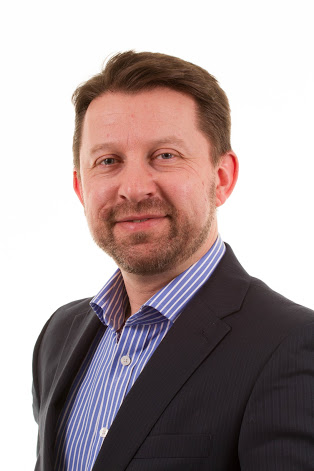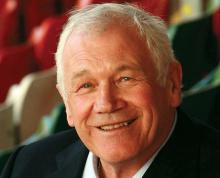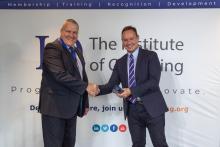
Phil James is departing as CEO of the
Your arrival as IQ’s new CEO in late 2012 marked a return to quarrying for you – tell us about that.
I was Quarry Manager with the RMC Group at various quarries in the Midlands. RMC were taken over by
One of the things that struck me most when I arrived was the massive improvement in safety and health that the industry had achieved, which was testament to the sustained and relentless collective effort of my colleagues who had continued in the industry whilst I’d been away.
The Institute itself was in good shape, but at the same time, ready to change and evolve as members saw the industry and the world around them changing.
The UK – indeed global - economy was still depressed, struggling out of recession, but membership was on the rise, which echoed the continued investment in people that companies seemed to have manage to make despite very tough economic conditions.
Why are you leaving in September 2016?
Purely to take up a great new personal challenge. I’m going to be the CEO at the Institute of Leadership and Management and again, it makes sense as a career move – I remember doing my ILM qualifications (NEBSM, at the time) as an Assistant Quarry Manager back in the 90’s, so there’s a resonance there with my quarrying career.
But, I’m hoping not to be a stranger to the industry. Now more than ever, there’s a clear and urgent need for great leadership development and even before I heard about the vacancy for my new job, IQ had started collaborating with ILM to look at bringing a new generation of leadership training and qualifications into this industry, led by some fantastic work that has been going on in the construction industry. So, I’m hoping that collaboration can continue with me on the other side of the partnership.
What would you see the main achievements within the industry during your time at IQ?
The industry itself has continued its relentless drive towards zero harm and should not be deterred from its trajectory of continuous improvement, even if, statistically, the going appears to have got tough.
The Institute of Quarrying has come a long way in a short time, too. I’ve been lucky enough to have been around to see the introduction of the new Technical Member (TMIQ) grade, compulsory CPD, some major steps forward in branding and communications and a complete overhaul in the Institute’s internal business systems.
We’ve also seen huge advances in IQ’s education activities. Through the University of Derby, there are now options to do Foundation Degrees, a full Honours Degree and a great career springboard in the new Higher Apprenticeship. The Institute’s new IQ Academy is going to be big, too, with a wide variety of learning opportunities and personal development.
One of the most exciting developments has been expansion into new international territories – specifically the USA and Middle East. All of these advances were made possible by a change in how the Institute is organised centrally. There’s now a smaller, more agile and more focused Board of Trustees in place and complete openness and transparency for members wishing to be part of that central machinery that determines IQ’s strategy and business objectives.
Any unfinished business?
Plenty! First of all, 2017 marks the Institute’s 100th birthday and there’s a lot planned and underway that I won’t get to see to fruition. Nevertheless, you can expect some great activities from a gala dinner to a show garden at RHS Chatsworth and plenty in between.
IQ has also gained wide support to become a Chartered Institute – something that will really put quarrying on the map as a profession. We’re also affiliating to the Engineering Council, which will allow us to provide Chartered Engineer status to members, through our friends and colleagues at IOM3.
So, what do you think are the remaining headline challenges for the Institute and for Quarrying – any predictions for the future?
Quarrying is still an amazing industry with great, great people that are taking it forward in line with our rapidly changing world. I have three tips for the future:
Embrace digital – my teenage kids have never known a world without the internet or digital technology. We live in a digital world where technology is re-shaping the way that we interact, work and do business. We have to go with it – everywhere - from the automation of mobile plant, to data-driven customer marketing, to new ways of engaging with our teams.
Leadership – great leadership, throughout our organisations, is the one critical ingredient that will make the biggest difference to the future success of businesses in our industry. I say that within the context of leadership skills being critical to the UK economy as a whole, particularly post-Brexit. We need to equip our people to take up leadership responsibilities from an early stage. We’re on the dawn of a new era in management thinking that is much more about engaged teams than the traditional ‘top-down’. We need to be bold and accelerate the career paths of younger people, as talent, rather than capital, becomes the new source of competitive advantage.
Globalisation – quarrying in the UK is no stranger to the phenomena of consolidation and global business ownership. But, more and more, we’re all living in a globally-connected world, where we’re open to the influence of thinking and practices from around the world. The Institute of Quarrying itself is becoming increasingly globalised and this is a great thing, enabling our members and everyone else to learn, share and adapt world class standards wherever we find them.
Any final words?
It’s been a blast!









